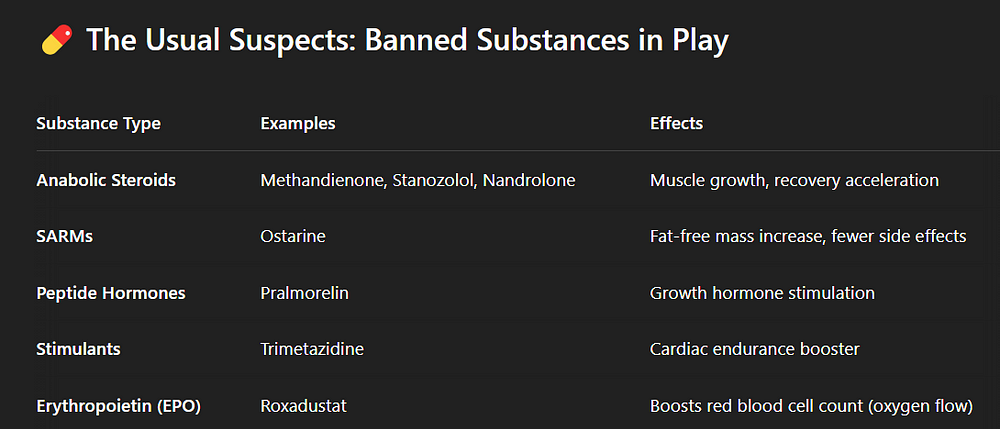Behind the Medal: The Global Doping Crisis and India’s Troubling Spotlight
In the high-octane world of competitive sports, where milliseconds separate legends from the forgotten, the temptation to bend the rules is real — and disturbingly common. A new wave of anti-doping data has revealed troubling trends across the globe. But one country stands out for all the wrong reasons: India.
Despite having modest infrastructure and limited global sporting dominance, India consistently ranks among the top nations for doping violations. But it isn’t alone. The global sports arena is riddled with controversy, from Russia’s state-sponsored doping to shocking lapses in anti-doping scrutiny in China.
This is a deep dive into the athletes, the substances, the systems — and the red flags.
🇮🇳 India: High Ambitions, Higher Violations
In 2022, India posted a doping violation rate of 3.26%, the highest in the world among nations testing more than 2,000 samples.
- 4,064 samples tested
- 127 adverse analytical findings
- Anabolic steroids, SARMs, and testosterone derivatives were the most common substances.
Unlike powerhouse countries with extensive Olympic pipelines, India’s violations point to structural weaknesses — poor awareness, shady coaching practices, and systemic gaps in athlete education.
🧨 Notable Indian Cases
- Narsingh Yadav (Wrestling): Banned for 4 years just before the 2016 Rio Olympics. Claimed sabotage, but lost appeal.
- Mandeep Kaur & Ashwini Akkunji (Track): Both tested positive for anabolic steroids; blamed contaminated supplements.
- Nirmala Sheoran (Track): Banned for 8 years after her second offense involving testosterone and steroid use.
- Aishwarya Babu (Triple Jump): Failed for Ostarine in 2022 — a selective androgen receptor modulator (SARM).
🌍 Global Lens: Doping Is Everywhere
Doping isn’t an “India problem” — it’s a global epidemic that taints even the most celebrated arenas.
🇷🇺 Russia: Systemic and State-Backed
- Known for a state-sponsored doping program.
- Multiple Olympic bans.
- In 2020, recorded 135 violations, the highest that year.
- Continues to struggle with whereabouts violations and weak internal checks.
🇨🇳 China: Quiet, But Controversial
- Conducted 19,228 tests in 2022 (most in the world).
- Violation rate: Only 0.2% — but this low number has raised eyebrows.
- 23 Chinese swimmers tested positive for Trimetazidine in 2020, but were cleared after a kitchen contamination claim. WADA accepted it. Critics didn’t.
🇺🇸 United States: Moderate Rate, Vocal Watchdog
- Violation rate: 1.24% (84 positives in 6,782 samples).
- USADA remains one of the most vocal watchdogs, especially critical of how China and WADA handled recent controversies.

⚠️ Why Do Athletes Dope?
- Performance Pressure: National, social, and financial expectations can push athletes to cut corners.
- Ignorance: Many Indian athletes cite ignorance or contaminated supplements as reasons.
- Lack of Access to Clean Nutrition: In India and some developing countries, access to certified supplements is limited.
- Weak Institutional Support: Inconsistent testing, lenient penalties, and poor athlete education create an environment of impunity.
🎯 The Road Ahead
If countries want to restore faith in the spirit of fair competition, anti-doping agencies must:
- Educate athletes at grassroots levels.
- Increase out-of-competition testing.
- Blacklist unregulated supplements.
- Implement a zero-tolerance approach — without bias or political interference.
Final Thoughts
The medal may glisten on the podium, but behind the shine, a darker truth often lurks. As India aspires for sporting greatness, it must first win the war against doping. And globally, it’s time we asked hard questions — not just of athletes, but of federations, agencies, and entire sporting cultures.